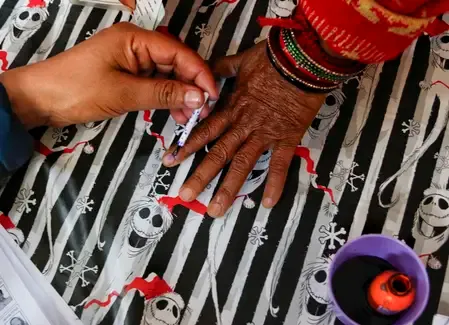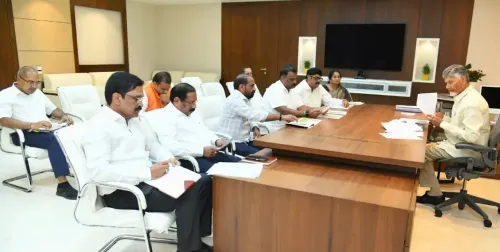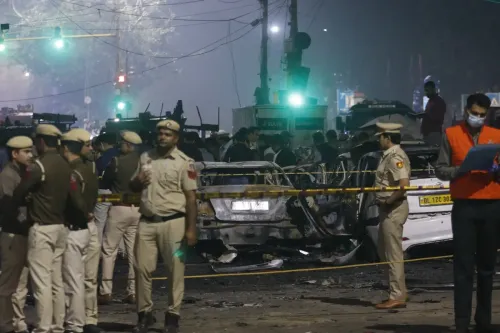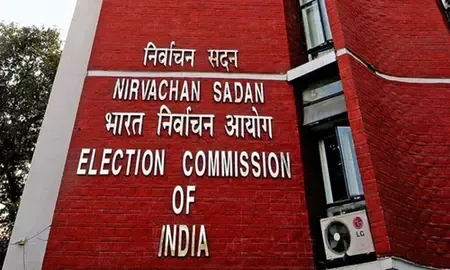Is the Rajasthan Sanjeevani Scam Creating a Rift Between Gehlot and Shekhawat?
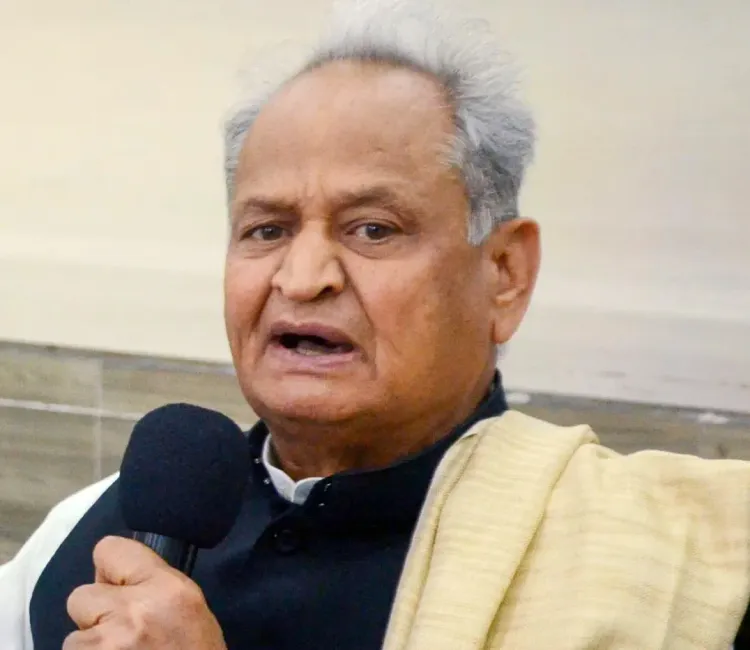
Synopsis
Key Takeaways
- Emotional political battles can eclipse legal accountability.
- The Sanjeevani scam has affected over 1.5 lakh investors.
- Key political figures are leveraging personal narratives.
- The current legal proceedings remain ongoing.
- Victims of the scam are still seeking justice.
Jaipur, July 6 (NationPress) The escalating verbal conflict between former Rajasthan Chief Minister Ashok Gehlot and Union Jal Shakti Minister Gajendra Singh Shekhawat regarding the Sanjeevani Credit Cooperative Society scam has transformed into a profoundly personal and political saga.
What initiated as a prominent financial fraud probe has morphed into an emotional clash that touches upon reputations, familial honour, and allegations of political retaliation.
At the epicenter of this controversy is a staggering Rs 950 crore scam that duped over 1.5 lakh investors through fictitious loans and misleading promises of high returns.
As the legal battle continues, the political repercussions have escalated, highlighted by Shekhawat's public refusal to forgive Gehlot for allegedly tarnishing his mother's reputation.
Gehlot sharply countered Shekhawat’s recent remarks, asserting on Sunday that he has “always held his (Shekhawat’s) mother in high regard” and provocatively remarked, “She must be questioning him in heaven as to why he invoked her name for defamation, without justification.”
This counterattack came shortly after Shekhawat, while speaking to the media in Jodhpur, declared, “I will not absolve Gehlot for the offense he committed against my mother’s dignity. A media apology will not be enough.”
This emotional framing has diverted the discussion from legal and financial responsibility to personal ethics and political morality, an unusual yet powerful tactic in political dialogue, where family honour is often leveraged to influence public opinion.
Gehlot’s position hinges on the timeline of investigative findings. He criticized the current BJP-led state administration for allegedly hastily clearing Shekhawat of any wrongdoing.
“They exonerated him in just two months post their government’s formation. We took two years to finalize our report. If we had dishonest intentions, we could have submitted it in two months and incarcerated him,” Gehlot remarked.
Interestingly, while the SOG's initial report implicated Shekhawat and his family members, the agency altered its position post-government change, claiming in the High Court that he was not a suspect.
Based on this shift, the High Court provided Shekhawat with relief but did not dismiss the FIR, as per Gehlot. This is where the legal narrative intertwines with political tensions.
Gehlot emphasized that the FIR remains valid, and further actions can be initiated with the trial court’s approval.
“What audacity is he displaying? The High Court has not annulled the FIR,” he commented, questioning Shekhawat's bold assertions of being exonerated.
By underscoring this legal nuance, Gehlot aims to undermine Shekhawat’s claims of exoneration. The former Chief Minister is attempting to reframe the clean chit not as an acquittal but as a procedural relief pending further investigation, according to political analysts.
Amid this political mudslinging, a crucial group remains overlooked—the victims.
The Sanjeevani Credit Cooperative Society, founded in Barmer in 2008, promised lucrative returns and overseas trips, enticing thousands to invest.
Ultimately, approximately Rs 950 crore was embezzled through counterfeit accounts and fraudulent loans. Despite numerous arrests, including the alleged mastermind Vikram Singh, most investors are still awaiting justice and restitution.
Gehlot reminded the public of this neglected plight, asserting that his remarks and actions were aimed at demonstrating to the victims that the government supports them.
What began as a financial inquiry has evolved into a political drama filled with emotions, legal strategies, and public posturing.
Both Gehlot and Shekhawat are utilizing personal narratives and institutional reports to construct opposing perspectives—one of targeted victimization and the other of dignified restraint and institutional credibility.
As the investigation into the Sanjeevani scam progresses in both legal and political realms, the pressing question remains: Will the quest for justice for the investors be eclipsed by the egotistical clash between two of Rajasthan’s leading political figures?

